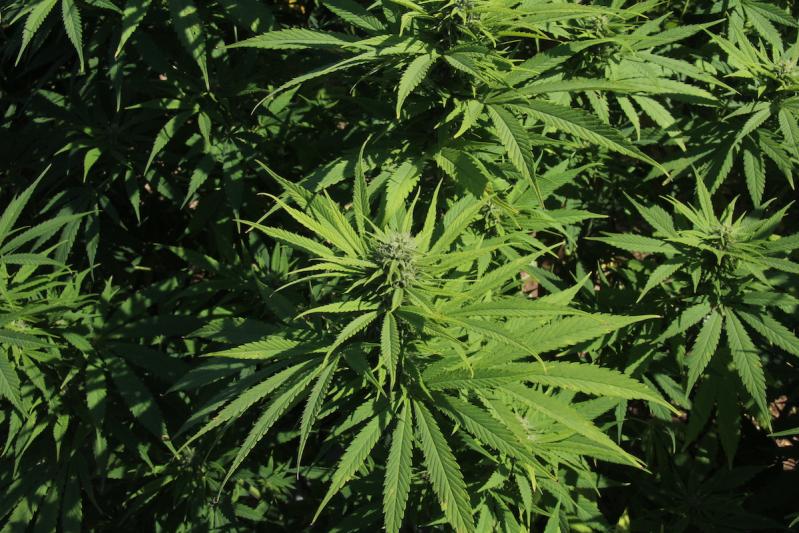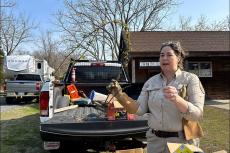The New York State Legislature voted on Tuesday to legalize marijuana for adult recreational use, joining a growing cadre of states that see green in the leaves and flowers of cannabis.
Soon, adults will be able to access marijuana products at retail dispensaries and will be able to consume it at specially licensed venues. A person 21 or older will be able to grow up to three mature plants and three immature plants at home, with a cap of six mature and six immature plants per household.
New York had already passed a medical marijuana bill in 2016 and decriminalized marijuana possession in 2019, which expunged many misdemeanor charges and reduced possession charges to violations for those who are found to have less than three ounces. As a result of the new legislation, sentences will be vacated for those serving prison time solely for marijuana-related charges, such as sale or possession.
Gov. Andrew M. Cuomo must now sign the legislation into law, but he has long advocated for the move and said in a statement late Tuesday that he intends to do so.
Two local legislators, Assemblyman Fred W. Thiele Jr. and State Senator Anthony Palumbo, both voted against the bill.
"I think that there are still too many unresolved issues," Mr. Thiele said by phone on Tuesday.
In the past, Mr. Thiele voted in support of decriminalization and medical marijuana, "but this bill, which has a whole comprehensive regulatory structure, isn't quite ready for prime time," he said.
David Falkowski, a farmer and hemp grower who owns Open Minded Organics in Bridgehampton and the OMO Apothecary in Sag Harbor, was excited to hear the news. "I'm definitely cautiously optimistic," he said early yesterday morning, after lawmakers deliberated well into Tuesday night.
Hemp plants are in the cannabis sativa family -- the plant species that also has varieties with higher concentrations of THC, the compound that produces the "high."
Of note, Mr. Falkowski said, is the state bill's separation of the growth and cultivation of marijuana from points of sale and consumption.
"I'm wearing two hats here. One is a human being, and it's really great to see this plant return to the people. From an entrepreneurial perspective, it's a little scary," he said. "We have no idea how it's actually going to look and function. It's one thing to draw a car on a piece of paper, with cool lights and concepts, but to roll it out in full scale is a very different thing. Right now, we are looking at words on paper."
Mr. Falkowski said he didn't step into the world of hemp thinking he "would be magically grandfathered into marijuana. It is nice to have an opportunity to use existing infrastructure. . . . I hope to be able to continue on that journey."
While many of the regulatory details have yet to take shape, lawmakers did say an excise tax of 13 percent on sales of marijuana products will generate a pot of revenue for the state and cities, counties, and villages -- if, that is, the municipalities do not opt out. Nine percent is earmarked for the state, 1 percent for counties, and 3 percent for cities, towns, and villages that allow retail sales and venues for consumption. The money -- as much as $350 million per year, lawmakers estimate -- will go toward public education, drug treatment, and the Community Grants Reinvestment Fund.
According to a summary of the legislation released on Sunday, the state will establish an Office of Cannabis Management as oversight. Driving while high will still be prohibited, and drug recognition experts will be trained and deployed. The Department of Health "may create and implement rules and regulations to approve and certify a test for the presence of cannabis in drivers," the state said in its announcement. "The legislation includes additional funding for drug recognition experts and law enforcement to ensure safe roadways."
In explaining his opposition to the bill, Assemblyman Thiele said, "I've been particularly moved by the arguments made with regard to vehicle and traffic enforcement. There's still opposition from the district attorneys, the New York State Parent Teacher Association, and I speak with a lot of educators -- they have reservations also."
That legalization could lead to addiction is what's alarming to Kym Laube, the executive director of HUGS Inc., a nonprofit organization that educates youth about substance abuse and runs after-school programs for kids and teens here on the East End. Some will "see this as a win and no big deal," she said, but it is indeed a big deal for people who work with youth and those in recovery from addiction.
"Over the years we have made positive strides in reducing alcohol and other drug use with teens with the exception of vaping and marijuana," Ms. Laube said in an email to The Star. "Legalization allows for easier access with low perceived risk of the harms associated with marijuana and ultimately an increase of substance use disorder. As we grapple with two pandemics, Covid-19 and substance use disorder, it is unfathomable to think that we would make this not-so-benign substance so readily accessible. Touted as 'adult use,' we know all too well the impact this will have on youth and in fact some states where pot is legal, we see youth addiction rates significantly increased."
The Centers for Disease Control and Prevention reported in 2017 that each year as many as 37.6 million people use marijuana, making it one of the most commonly used drugs in the nation. The C.D.C. refers to it as "illicit" or "illegal." However, the number of states where it has been legalized is growing, standing at 15 prior to New York's vote on Tuesday. It is also legal in Washington, D.C., and several United States territories. The C.D.C. also acknowledges on its website that cannabis has some therapeutic health benefits.
The New York Times reported earlier this month that a Siena College poll had found that about 60 percent of voters in New York favored legalizing marijuana for adult use.




